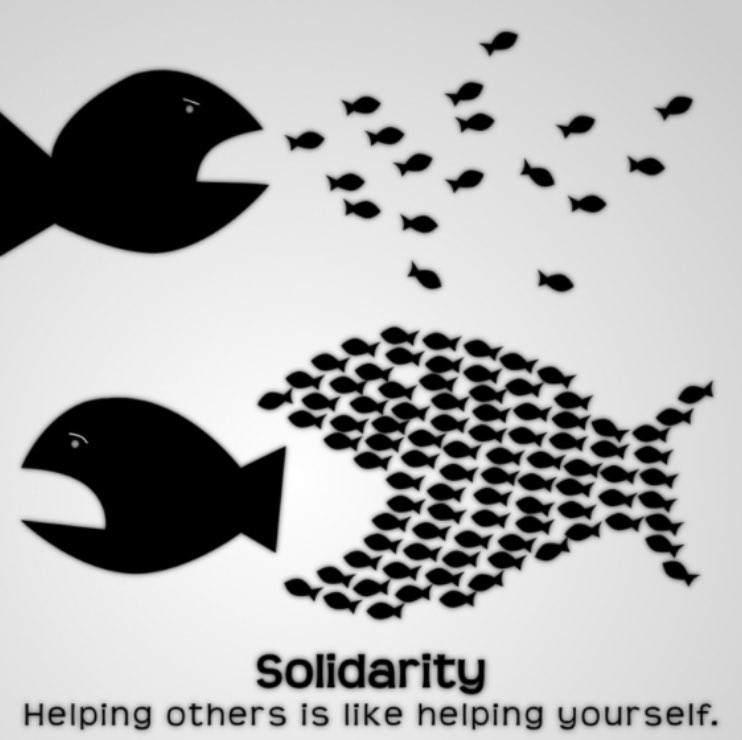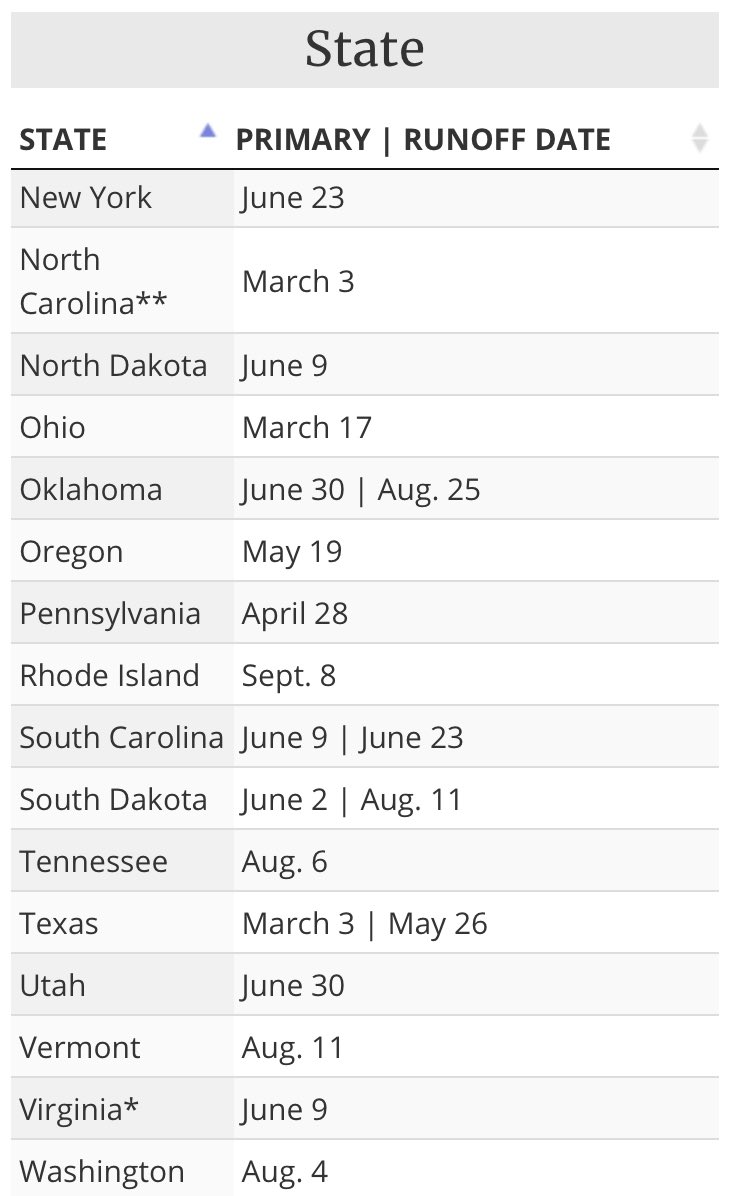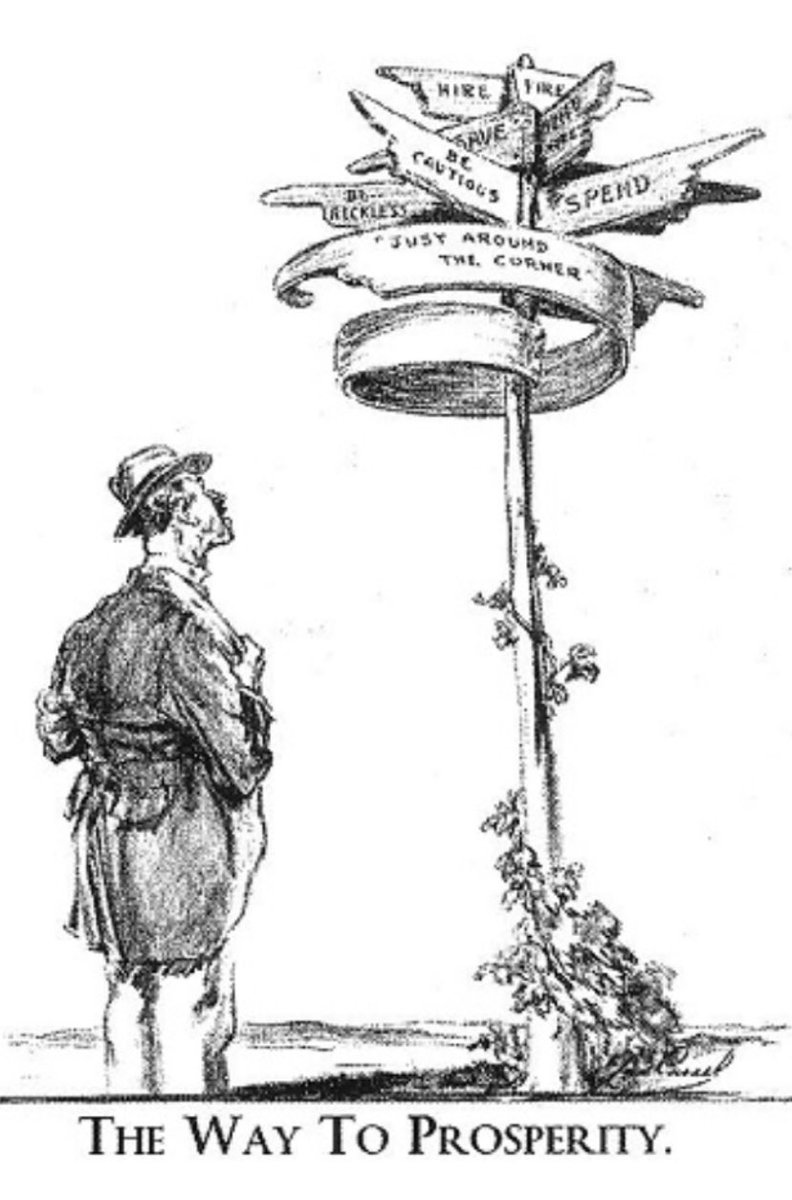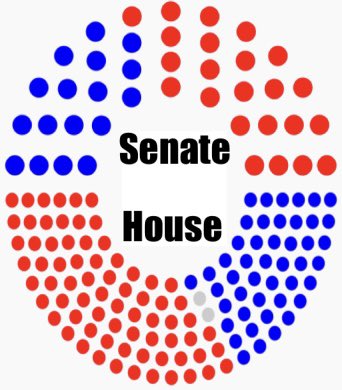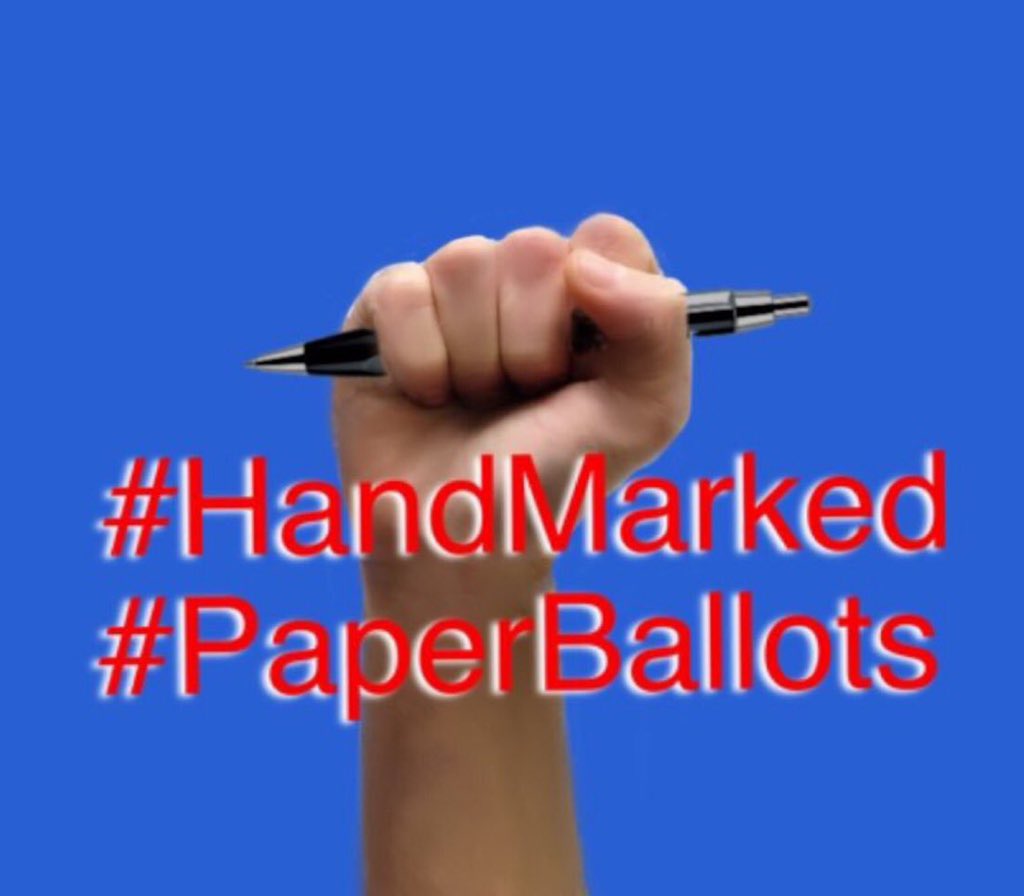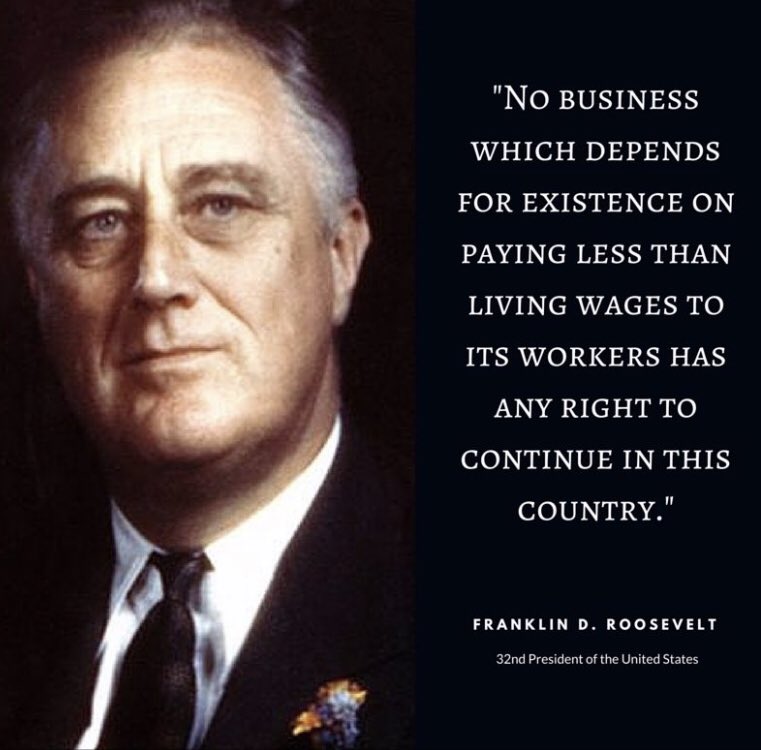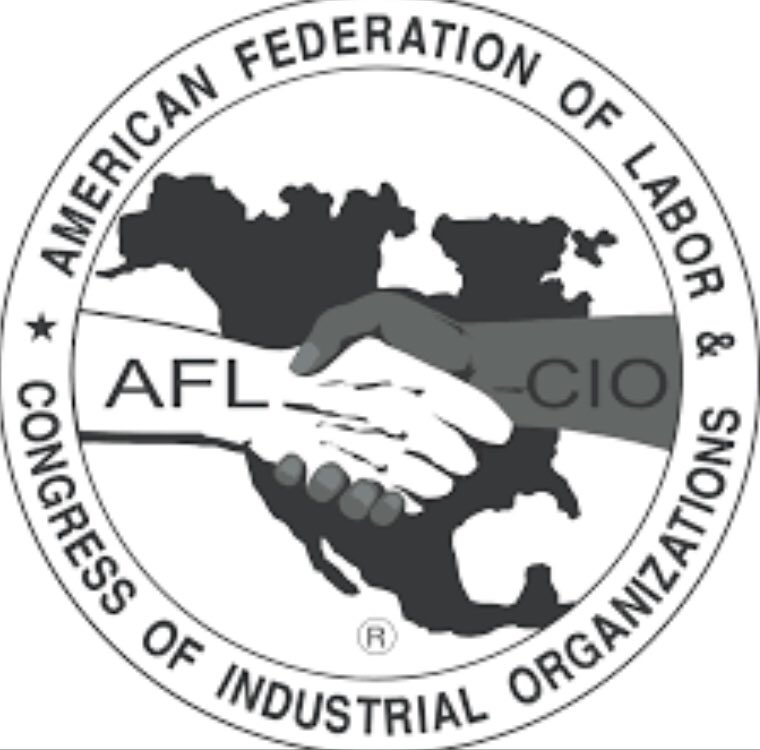
Let’s talk about #Socialism.
This will be an open discussion about a political/economic theory.
It is NOT to support ANY candidate or platform.
It is purely for education so we’re “on the same page” with this topic.
#ResistanceEducation
👇Long thread👇
This will be an open discussion about a political/economic theory.
It is NOT to support ANY candidate or platform.
It is purely for education so we’re “on the same page” with this topic.
#ResistanceEducation
👇Long thread👇

Another quick note:
If you are NOT a socialist, that’s great!
You should still read this brief overview so you can understand the current arguments of the socialist debate.
At the end I’d love to hear any questions.
Ok, let’s get started.
If you are NOT a socialist, that’s great!
You should still read this brief overview so you can understand the current arguments of the socialist debate.
At the end I’d love to hear any questions.
Ok, let’s get started.
At its core, socialism is simply the name applied to a group of theories critical of capitalism.
As old as capitalism is (depending on definition), socialism is only a few minutes younger.
As old as capitalism is (depending on definition), socialism is only a few minutes younger.

I’m not going to talk about early utopian & Christian socialist trends, aside to note that they were there.
Instead I’ll be focusing on Marx and his mature economic theories (NOT the “Communist Manifesto”, which is simply well-written propaganda).
Instead I’ll be focusing on Marx and his mature economic theories (NOT the “Communist Manifesto”, which is simply well-written propaganda).

Socialism as an economic theory starts with a simple question: what is profit?
Phrased another way: if I own a firm that produces widgets, and you sell your labor to me for $10/hr, how much money am I making from you?
This is not a trivial question.
Phrased another way: if I own a firm that produces widgets, and you sell your labor to me for $10/hr, how much money am I making from you?
This is not a trivial question.

If you make $10/hr, you have to transfer more value to me than that for me to make a profit.
If a widget sells on the market for $15, and you can make 1/hr, that means you GIVE me $5/hr more in labor than I pay you.
This is called exploitation.
If a widget sells on the market for $15, and you can make 1/hr, that means you GIVE me $5/hr more in labor than I pay you.
This is called exploitation.

The “extra” $5/hr is not just pocketed though. There are material costs for these widgets, machine costs, and maintenance costs as well.
However, these costs can never equal the $5 because then the capitalist would have no profit.
However, these costs can never equal the $5 because then the capitalist would have no profit.

This leads us to a simple breakdown of what the market price for any commodity represents:
P = W + C + S
P: price
W: wages
C: materials/machine/etc costs
S: surplus
This is also where most people who have studied economics jump in and scream about markets.
P = W + C + S
P: price
W: wages
C: materials/machine/etc costs
S: surplus
This is also where most people who have studied economics jump in and scream about markets.

The criticism is that supply and demand dictate price so there is no way to compose it from the “ground up” like this without acknowledging that firms place a markup on their products.
Which is exactly true.
The markup covers the “S” in the above equation.
Which is exactly true.
The markup covers the “S” in the above equation.

So what is the surplus and where does it go?
Capitalists cannot simply pocket all of it, they need to pay for other social costs and for other employees (managers etc) who don’t actually produce products directly.
Only then can they pocket their profits.
Capitalists cannot simply pocket all of it, they need to pay for other social costs and for other employees (managers etc) who don’t actually produce products directly.
Only then can they pocket their profits.

So with this basic introduction to Marxian economics done, what is Marx’s suggestion?
That the person who produced that surplus should have a say in where it goes, who it pays, and how it is used.
That’s it. That’s socialism. Scary right?
That the person who produced that surplus should have a say in where it goes, who it pays, and how it is used.
That’s it. That’s socialism. Scary right?

Ok, maybe it’s not that simple.
History has a way of making simple things very messy.
Note that this says NOTHING about government, class struggle, social justice, or anything else that gets called socialism.
It’s simply a description of an economic system.
History has a way of making simple things very messy.
Note that this says NOTHING about government, class struggle, social justice, or anything else that gets called socialism.
It’s simply a description of an economic system.

The role of “the state” in socialist theory is generally considered minimal, you may even hear many exclaim “Abolish the state!”.
So where did the idea of state ownership come in to modern notions of socialism?
Lenin, sort of.
So where did the idea of state ownership come in to modern notions of socialism?
Lenin, sort of.

One of Lenin’s main contributions to socialist theory is the notion of a “vanguard state”: a government set up to conduct and ease the transition to the “socialist mode of production”.
Later, Stalin would articulate a theory of “Socialism in One Country”.
Later, Stalin would articulate a theory of “Socialism in One Country”.
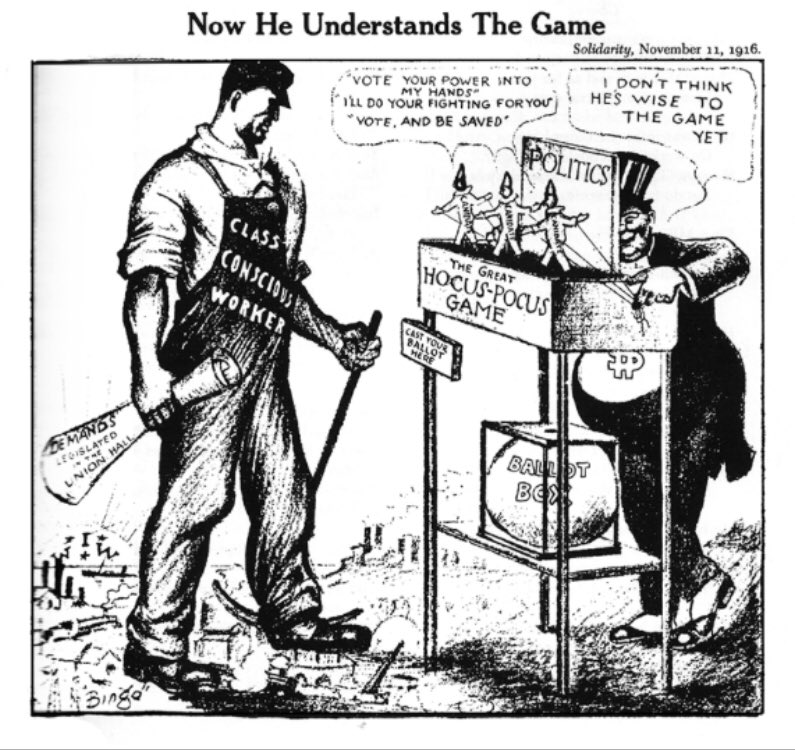
The basic divide between these two competing ideas comes from the question of how to control the surplus: do the workers directly control it, or do all people in society via a state?
This is no less trivial than the companion debate in capitalist economies.
This is no less trivial than the companion debate in capitalist economies.

On the libertarian/anarchist side, the debate focuses on free association and autonomy of workers.
On the centralized side, it focuses on the rights of the society as a whole having a say in what should be done.
It’s a very important debate to have.
On the centralized side, it focuses on the rights of the society as a whole having a say in what should be done.
It’s a very important debate to have.

With that said, however, the USSR never made it to a true socialist mode of production due to the lack of worker control of the surplus.
It did succeed in state capitalism, which Wilhelm Liebknecht theorized would be the “last stage” of capitalism.
It did succeed in state capitalism, which Wilhelm Liebknecht theorized would be the “last stage” of capitalism.

Why is state capitalism different than socialism?
Because there has been no transformation of the workplace; there is no democratic control of the surplus.
It’s that simple (remember the economic discussion above).
Because there has been no transformation of the workplace; there is no democratic control of the surplus.
It’s that simple (remember the economic discussion above).

What role does class play in socialist theory?
The central role!
All this talk of workers and labor is really a nod to the notion of a working class.
The class that actually PRODUCES the surplus.
The “proletariat”.
The central role!
All this talk of workers and labor is really a nod to the notion of a working class.
The class that actually PRODUCES the surplus.
The “proletariat”.

Capitalists (the “bourgeoisie) are the ones who control the distribution of the surplus in capitalism.
The lords did it in feudalism; the masters in slave economies.
The other classes in Marxist theory are the subsumed class and petite bourgeoisie.
The lords did it in feudalism; the masters in slave economies.
The other classes in Marxist theory are the subsumed class and petite bourgeoisie.

The subsumed class are the people who we would call white collar workers; they don’t produce the surplus directly, but are paid to maintain the system of exploitation.
The subsumed class is payed with a portion of the surplus not pocketed as profits.
The subsumed class is payed with a portion of the surplus not pocketed as profits.

The petite bourgeoisie is the name given to those who have the common “American Dream”: the small shop keepers, small commodities traders, etc.
They may produce surplus, or not.
Self awareness of what class you’re in is called “class consciousness”.
They may produce surplus, or not.
Self awareness of what class you’re in is called “class consciousness”.

Where does social justice fit into Marxist theory?
It does so only tangentially: the basic premise of Marxian economics, and Marxist (note the difference!) politics is that class struggle and ending exploitation is paramount to all other issues.
It does so only tangentially: the basic premise of Marxian economics, and Marxist (note the difference!) politics is that class struggle and ending exploitation is paramount to all other issues.

If you’ve made it this far, let me first apologize for this being so long.
Second, thank you for actually reading this and (hopefully) considering it.
Third, I’d like to emphasize that this is just an overview of some basic aspects of Socialist theory.
Second, thank you for actually reading this and (hopefully) considering it.
Third, I’d like to emphasize that this is just an overview of some basic aspects of Socialist theory.
Lastly, I’d like to add that I am not actually a Marxist (so you may want to read Marxists to see if you are or aren’t) and that there are many other theorists of socialism that are well worth researching.
If your more inclined to social justice, you may want to read up on some forms of “utopian socialism”.
Notable authors include Fourier, Saint-Simon, and Owens.
Engles’ “Socialism: Utopian and Scientific” is also a good read.
Notable authors include Fourier, Saint-Simon, and Owens.
Engles’ “Socialism: Utopian and Scientific” is also a good read.
Suggested reading:
“Das Kapital”, “Critique of the Gotha Program”
-Marx
“Evolutionary Socialism”
-Bernstein
“Social Reform or Revolution”
-Luxemburg
“Anarcho-Syndicalism”
-Rocker
“The Poverty of Historicism”
-Popper
“The Ecology of Freedom”
-Bookchin
“Das Kapital”, “Critique of the Gotha Program”
-Marx
“Evolutionary Socialism”
-Bernstein
“Social Reform or Revolution”
-Luxemburg
“Anarcho-Syndicalism”
-Rocker
“The Poverty of Historicism”
-Popper
“The Ecology of Freedom”
-Bookchin
Resources:
marxists.org/index-mobiles.… is an extensive online library of socialis theorists.
@BlackSocialists has an excellent website with lots of great info.
@jacobinmag, @monthly_review & @SocialistViews are socialist magazines.
marxists.org/index-mobiles.… is an extensive online library of socialis theorists.
@BlackSocialists has an excellent website with lots of great info.
@jacobinmag, @monthly_review & @SocialistViews are socialist magazines.
@DemSocialists @DSA_Enviro @dsa_lsc @RethinkMarxism @BRRN_Fed @IGD_News @IAF__FAI @CriticalReading
Are all great resources as well.
Are all great resources as well.
Ok, now it’s question time.
If you’d like to ask me a real question, or would like to debate a particular point, I’m more than willing to.
If I don’t respond, and your question isn’t just bashing socialism, please tag me.
If you’d like to ask me a real question, or would like to debate a particular point, I’m more than willing to.
If I don’t respond, and your question isn’t just bashing socialism, please tag me.
• • •
Missing some Tweet in this thread? You can try to
force a refresh



